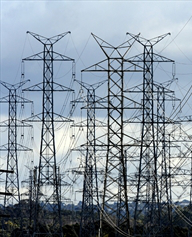State power firms cash-grab curtailed
 The Australian Energy Regulator (AER) has recommended Queensland power companies Energex and Ergon charge households $6.6 billion and $6.3 billion respectively between 2015 and 2020.
The Australian Energy Regulator (AER) has recommended Queensland power companies Energex and Ergon charge households $6.6 billion and $6.3 billion respectively between 2015 and 2020.
The figure is less than the power companies said they needed, and it appears the effect of the ruling depends on who is asked.
The Queensland Government says the AER’s final ruling on network costs will bring an end to steep price increases that have hit households in recent years.
The recommendation is more than 20 per cent lower than the revenue Ergon and Energex say they require.
Energy Minister Mark Bailey says price stabilisation for consumers is locked in, claiming power bills will not rise, but they may not fall either.
The Energy Minister conceded that there will be job losses at the power companies to make the best of the reduced income.
“The regulator's decision to reduce Energex and Ergon's revenues will require them to continue to make further efficiency improvements,” he said.
“Any adjustments in staff numbers will be achieved through voluntary redundancies and natural attrition.”
The Electrical Trades Union (ETU) wants the job cuts to come from management.
“I worked in the industry and I saw the empires that these guys built up over the last 10 to 15 years,” secretary Peter Simpson said.
“It's outrageous in some respects. So there's a lot of money - a couple of CEOs they could get rid of, for a start.”
The Queensland Council of Social Service says the possible minor price drop will hardly relieve financial burdens on households at all.
The council's chief executive, Mark Henley, has told ABC reporters that typical residential bills will fall by only $17 a year on average in 2016-17.
Still, he said he welcomes the corollary decision to block electricity distribution companies from appealing further increases.
“Despite this, we remain disappointed in the decision of the AER,” Mr Henley said.
“Its own consumer challenge experts have pointed out that Energex and Ergon's operating profits have risen sharply during the past five years due to over-generous revenue allowances, which has been to the detriment of consumers.”







 Print
Print